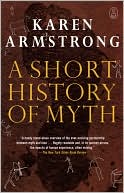Category Books
- Fiction Books & Literature
- Graphic Novels
- Horror
- Mystery & Crime
- Poetry
- Romance Books
- Science Fiction & Fantasy
- Thrillers
- Westerns
- Ages 0-2
- Ages 3-5
- Ages 6-8
- Ages 9-12
- Teens
- Children's Books
- African Americans
- Antiques & Collectibles
- Art, Architecture & Photography
- Bibles & Bible Studies
- Biography
- Business Books
- Christianity
- Computer Books & Technology Books
- Cookbooks, Food & Wine
- Crafts & Hobbies Books
- Education & Teaching
- Engineering
- Entertainment
- Foreign Languages
- Game Books
- Gay & Lesbian
- Health Books, Diet & Fitness Books
- History
- Home & Garden
- Humor Books
- Judaism & Judaica
- Law
- Medical Books
- New Age & Spirituality
- Nonfiction
- Parenting & Family
- Pets
- Philosophy
- Political Books & Current Events Books
- Psychology & Psychotherapy
- Reference
- Religion Books
- Science & Nature
- Self Improvement
- Sex & Relationships
- Social Sciences
- Sports & Adventure
- Study Guides & Test Prep
- Travel
- True Crime
- Weddings
- Women's Studies
A Short History of Myth »

Authors: Karen Armstrong
ISBN-13: 9781841958002, ISBN-10: 184195800X
Format: Paperback
Publisher: Canongate U.S.
Date Published: September 2006
Edition: (Non-applicable)
Author Biography: Karen Armstrong
Karen Armstrong’s first book, the bestselling Through the Narrow Gate, described her seven years as a nun in a Roman Catholic order. She has since published numerous bestselling books, including A History of God, Islam: A Short History, Buddha, The Spiral Staircase and most recently The Great Transformation. She is a freelance writer and she lives in London.
Book Synopsis
This brilliant, readable synthesis of the history of mythology and the function it serves to humanity is the launch title of the groundbreaking publishing event, The Myths. “Human beings have always been mythmakers.” So begins Karen Armstrong’s concise yet compelling investigation into myth: what it is, how it has evolved, and why we still so desperately need it. She takes us from the Paleolithic period and the myths of the hunters right up to the “Great Western Transformation” of the last five hundred years and the discrediting of myth by science. The history of myth is the history of humanity, our stories and beliefs, our curiosity and attempts to understand the world, which link us to our ancestors and each other. Myths help us make sense of the universe. Heralding a major series of retellings of international myths by authors from around the world, Armstrong’s characteristically insightful and eloquent book serves as a brilliant and thought-provoking introduction to myth in the broadest sense -- and explains why if we dismiss it, we do so at our peril.
The New York Times - Caroline Alexander
A Short History of Myth is a handy stand-alone overview of the ever-evolving partnership between myth and man from Paleolithic times to the present. Succinct and cleanly written, it is hugely readable and, in its journey across the epochs of human experience, often moving.
Table of Contents
| I | What is a myth? | 1 |
| II | The Palaeolithic period : the mythology of the hunters (c. 20000 to 8000 B.C.E.) | 12 |
| III | The Neolithic period : the mythology of the farmers (c. 8000 to 4000 B.C.E.) | 41 |
| IV | The early civilisations (c. 4000 to 800 B.C.E.) | 58 |
| V | The Axial age (c. 800 to 200 B.C.E.) | 79 |
| VI | The post-Axial period (c. 200 B.C.E. to c. 1500 C.E.) | 104 |
| VII | The great Western transformation (c. 1500 to 2000) | 119 |
Subjects
 Social Sciences
Social Sciences  Folklore & Mythology
Folklore & MythologyScience & Nature
 Social Sciences
Social Sciences  Folklore & Mythology
Folklore & MythologySocial Sciences
 Folklore & Mythology
Folklore & Mythology  Mythology - General & Miscellaneous
Mythology - General & Miscellaneous
